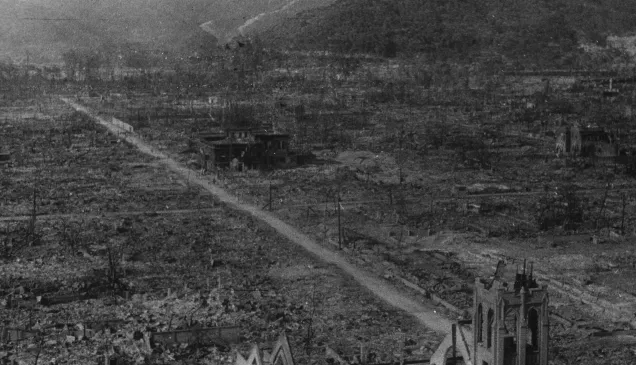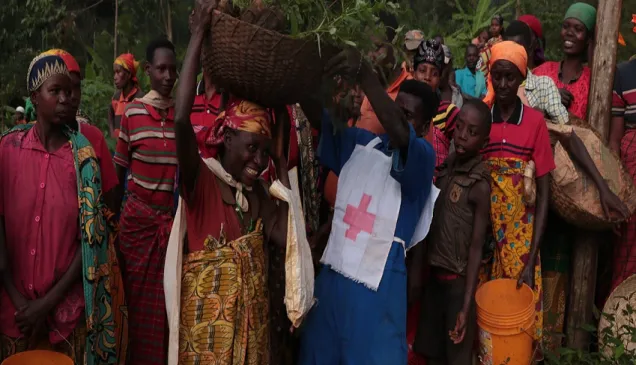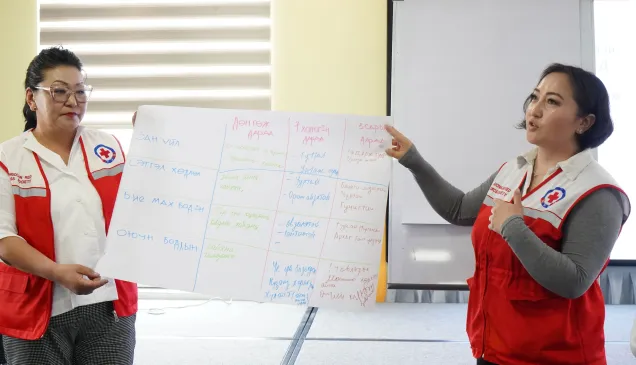14th UN Crime Congress: ICRC calls for greater focus on health, dignity of detainees
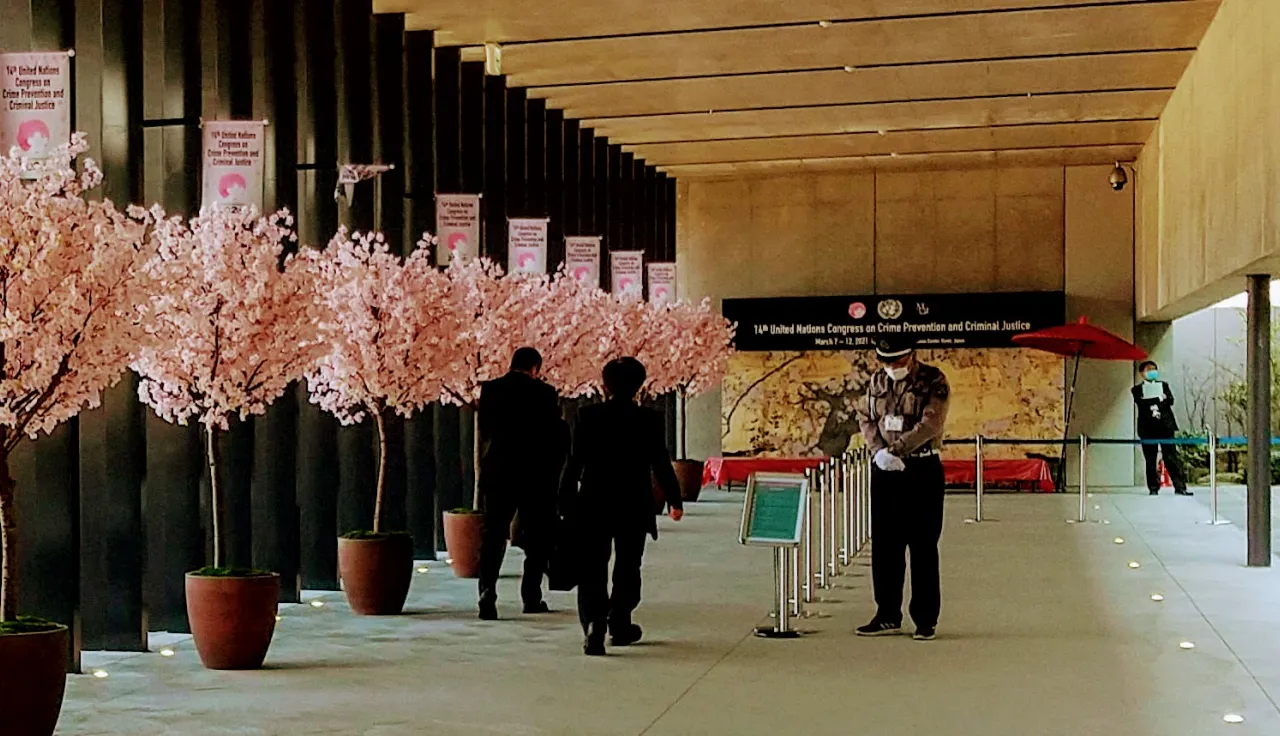
Tokyo (ICRC) – The United Nations Congress on Crime Prevention and Criminal Justice, which has been held every five years since 1995, was organized this year in Kyoto, Japan, from 7 to 12 March.
Delegates of the International Committee of the Red Cross (ICRC), which visits correctional facilities – including detention centres mainly in conflict areas as part of its activities – spoke at seven ancillary meetings of the congress for six straight days. They covered topics like prevention and control of COVID-19, addressing overcrowding in correctional facilities and exchange of expertise on humanitarian issues and technical assistance.
After the congress, Regis Savioz, head of the ICRC's delegation in Japan, said, "The Congress was a unique opportunity for the ICRC to share experiences, promote good practices and possibly influence policies on prison management. The ICRC colleagues in both Geneva and Tokyo participated in several ancillary meetings that were organized during the week."
"The subjects covered included prevention and control of COVID-19 in prisons, training of prison officers, addressing prison overcrowding through alternatives to imprisonment, protection of children in armed conflict, the role of Asian Conference of Correctional Facilities Architects and Planners (ACCFA) and solitary confinement."
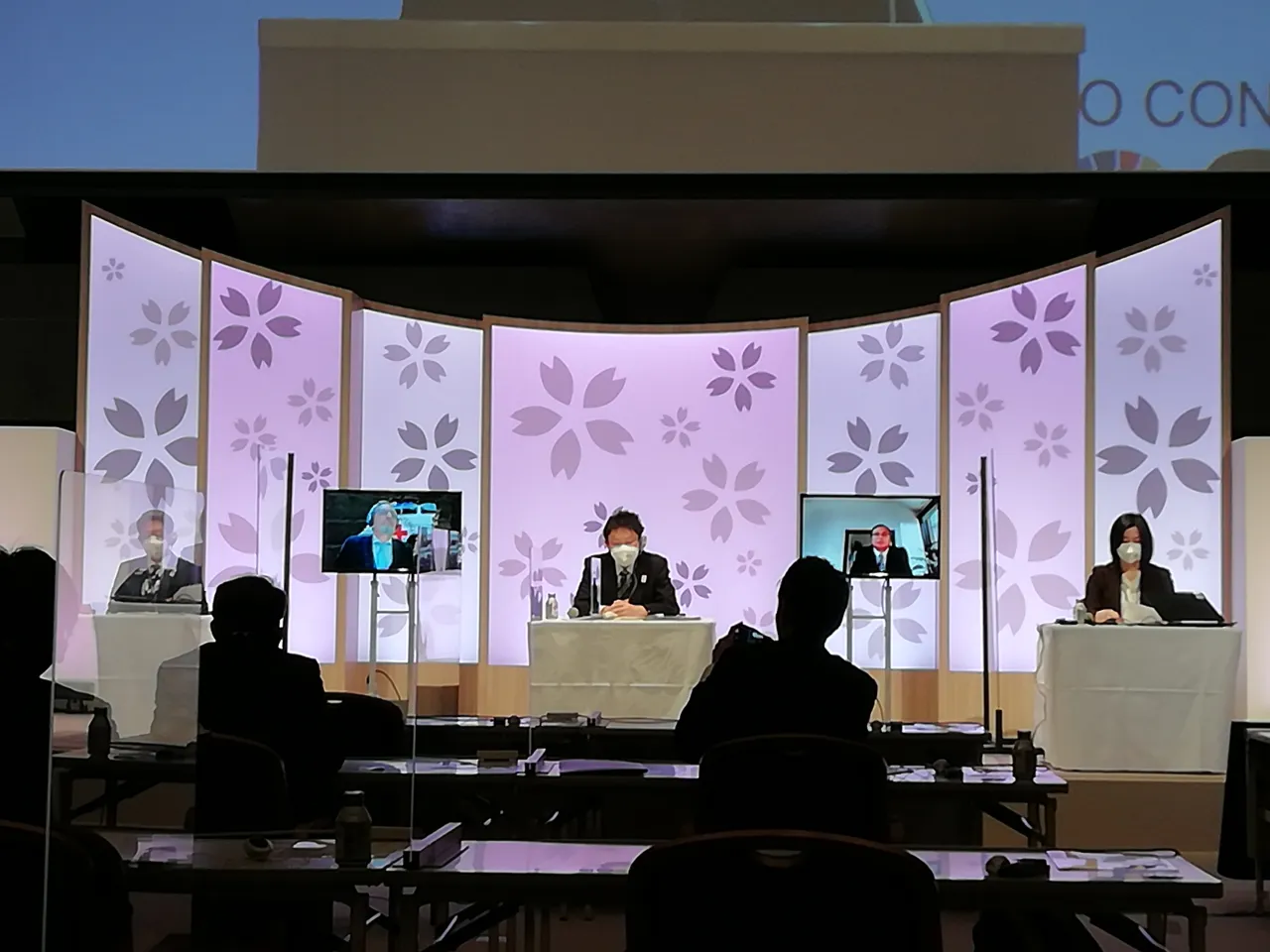
The ICRC spoke at seven ancillary meetings, including those on topics such as prevention and control of COVID-19 and addressing overcrowding in correctional facilities. ©ICRC
Of the seven meetings, most of them focused on the topic of prevention and control of infections in confined spaces such as prisons, in response to the recent developments in the global COVID-19 pandemic situation. On these forums, the ICRC raised its concern that the spread of COVID-19 not only affects the health of detainees and facility staff, but also has wide-ranging impact such as restriction on visits, hampering of food procurement and limited access to lawyers and courts.
The ICRC also shared examples of the support it provides through its field operations around the world:
- Providing personal protective equipment and medical supplies
- Distributing leaflets on infection-control measures, including proper hand-washing
- Providing support for infrastructural improvements, especially for medical isolation and screening
- Engaging in training sessions for detaining authorities and health staff
- Providing nutritional advice and supplements to strengthen the immune system of detainees
- Supporting authorities to provide vaccinations and health-care services to detainees
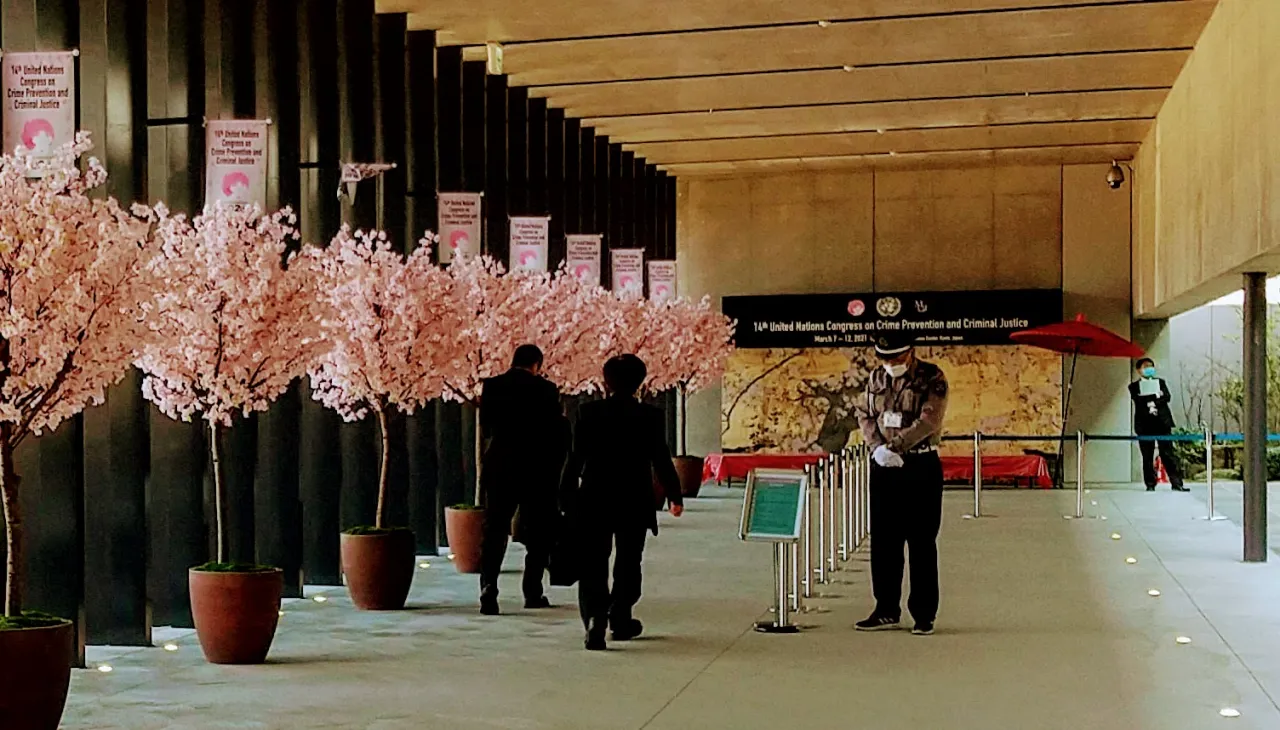
The Kyoto Congress was held in a hybrid format to limit the number of in-person participants amid the COVID-19 pandemic. ©ICRC
In an ancillary meeting on the topic of training for prison officers, the ICRC reported that it has held more than 200 sessions on prevention and control of infectious diseases. It also spoke about the Virtual Reality (VR) tools used in these training sessions.
Furthermore, in an ancillary meeting addressing solitary confinement, discussions focused on the physical and mental burden on people who are confined. The ICRC pointed out that such people face the problem of being cut off from the rest of the world, along with issues such as limited space and poor lighting and ventilation.
It was also stressed that it's important to socially reintegrate these people through remedial measures, instead of just punishing them by placing them in solitary confinement. "For those who have been confined for years, the ICRC staff sometimes becomes the first and only person to have a conversation with. Some of them are even stumped for words as they haven't had a chance to talk with anyone for such a long time."
Savioz took part in an ancillary meeting discussing protection of children in armed conflict, hosted by Save the Children Japan. He said, "In order for children to be protected, it is important for national governments to abide by international humanitarian law and to urge all parties to the conflict to do so as well."
He went on to explain the role the ICRC plays in promoting the implementation of IHL, while presenting examples of its activities in this area. "To protect the rights of children around the world, we provide support such as securing educational opportunities and returning former child soldiers to their parents."
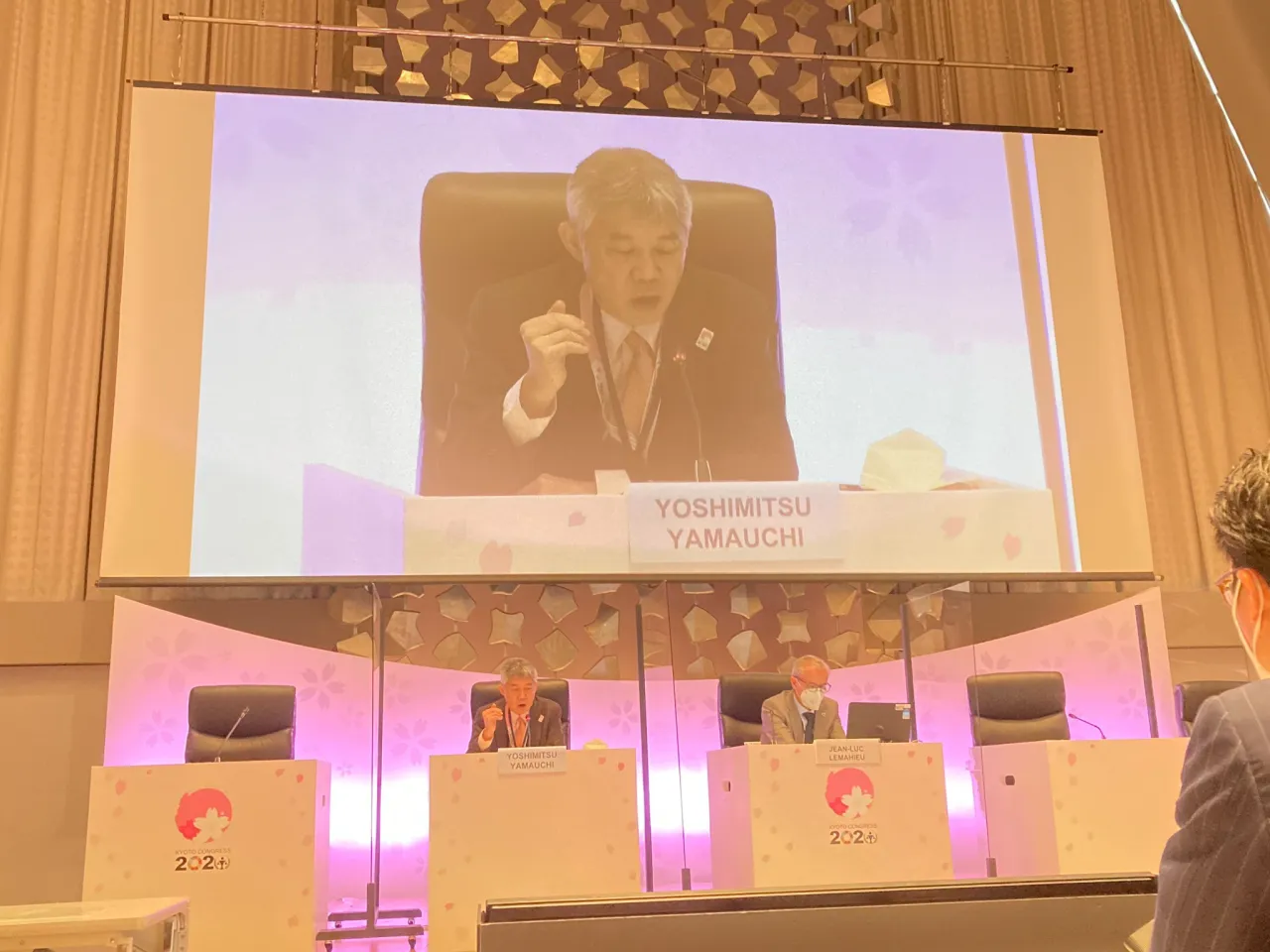
Mr Yoshimitsu Yamauchi, the assistant vice-minister of justice and chief of the Secretariat of the Kyoto Congress on the host-country side. ©Ministry of Justice, Japan
The Kyoto Congress was postponed by nearly a year due to the ongoing COVID-19 crisis, and was finally held in a hybrid format, limiting the number of in-person participants by enabling virtual participation. It became the first major international conference to be organized by the United Nations in Japan since the start of the crisis.
Mr Yoshimitsu Yamauchi, the assistant vice-minister of justice and chief of the Secretariat of the congress on the host-country side, said, "The *Kyoto Declaration adopted during the congress provides the United Nations and its State Parties with mid-to-long-term guidelines on crime prevention and criminal justice. We are proud to say that the number of participants this year was the largest ever, including the number of virtual participants. The governments alone cannot fully and effectively prevent crime. As stated in the declaration, the cooperation between multiple stakeholders such as local governments, civil society, private sector and international organizations is crucial."
Furthermore, he welcomed the cooperation of the ICRC in promoting judicial diplomacy in the future: "We appreciate the ICRC's continuous efforts and initiative in disseminating rule of law in the international community and its knowledge obtained through its worldwide activities, especially through visiting correctional facilities in countries where international support is needed."
Given the role of visiting detention facilities and observing whether detainees are treated humanely as mandated by the Geneva Conventions, the ICRC visited 1,274 correctional facilities worldwide in 2019 alone. The ICRC advices and supports detention authorities to improve the infrastructure, water and sanitary facilities and health care. We focus on securing dignified treatment of detainees and seek to alleviate the suffering of their families by helping restore contact between detainees and their relatives.
For more information, please contact:
Hitomi Makabe, Head of Communication, ICRC Japan
hmakabe@icrc.org | +818041429723
https://jp.icrc.org/
facebook.com/icrc.jp | twitter.com/icrc_jp

